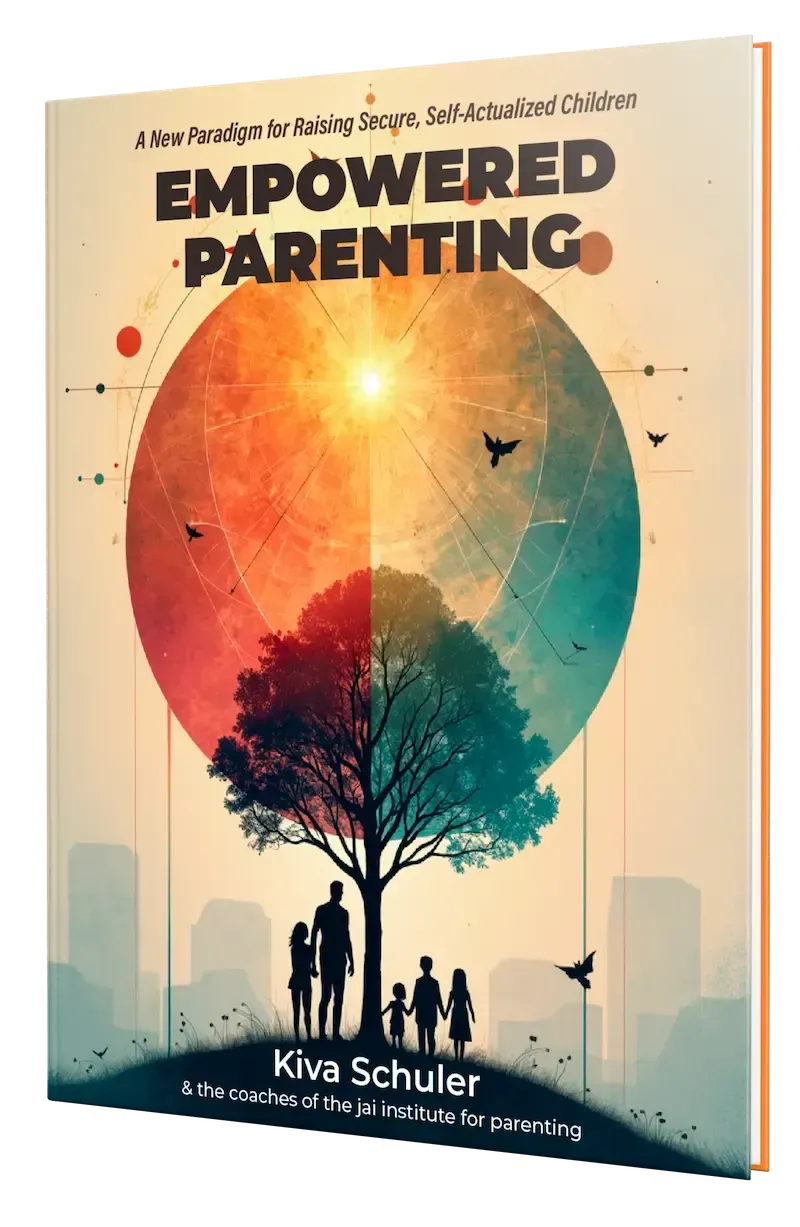6 Habits to Help You Stop Reactive Parenting

As parents, we all strive to provide the best for our children and create a nurturing environment where they can thrive. With the demands and pressures of daily life, it's easy to slip into reactive parenting patterns, where our responses are driven by our emotions rather than thoughtful consideration. We behave in ways we wish we hadn’t and are the kind of parents we said we wouldn’t be.
Reactive parenting makes our job as parents feel draining, erratic, and stressful. It can erode the foundation of our relationships with our children and hinder their healthy emotional development.
It takes more than the desire to break free from this cycle to make lasting change, but with a bit of intention and some powerful tools, we can be the parents we long to be, the ones our children deserve.
What Is Reactive Parenting?
This way of parenting is defined by responding to our children’s impulsive behavior and being driven by our emotions in the moment. Reactive parenting can lead to power struggles, conflicts, and strained relationships.
Many reactive parents genuinely make promises to do things differently, only to repeat the same patterns. The initial antidote to this way of parenting can be found through understanding, empathy, and intentionality. Lasting change requires new insights, tools, commitment, and support!
Here are seven effective habits to help you shift from reactive to peaceful parenting so you can have deeper connections with your children and promote their emotional well-being and yours:
1. Cultivate Mindful Awareness
In order to
practice proactive vs reactive parenting, mindful awareness of our own emotions and triggers is a great place to start. Often, we are so busy experiencing our feelings that we don’t stop to understand what is going on in our moment of reaction.
Daniel Siegel, Clinical Professor of Psychiatry at the UCLA School of Medicine and author of six parenting books, explains why this is a critical starting point, "Being aware of our own feelings and experiences is crucial before we can understand those of our children."
Regularly checking in with our emotional state can identify potential triggers and help us better respond to our children from a place of calm and understanding.
Meeting these moments with immediate curiosity about what is happening for your child and internally for you will allow you to move into a state of mindfulness. From there, all kinds of new possibilities open up for how to handle whatever situation is in front of you. Practicing mindfulness enables you to pause before reacting, giving you the space to choose your response consciously.
By understanding your own emotions, you can begin to find ways to attend to and soothe them so you can avoid getting emotionally dysregulated, which is where our reactions stem from. Then, you can model this skill for your children, helping them develop these crucial tools for themselves.
2. Embrace Empathetic Listening
Peaceful parenting involves
being present and truly listening to our children
without judgment or interruption. By actively practicing empathetic listening, we create a safe space for our children to express themselves authentically.
Reactive parenting often stems from misinterpreting a child's behavior as intentional
defiance rather than a signal of their internal struggles. This misinterpretation doesn’t allow you to connect to your child's emotions and perspectives, a critical part of staying grounded and calm.
According to psychologist and parenting expert Alfie Kohn, "Children are more likely to be open to our influence when they feel heard." This one shift can create near-magical changes in challenging situations with our children.
Like all humans, when children feel heard and understood, they are more likely to cooperate and share their thoughts and feelings. We are often so flustered in the moment and focused on our own needs and goals that we forget to go back to the basics of listening and communicating in ways that promote understanding.
Slowing down to listen in tense moments helps prevent misunderstandings that can trigger reactive responses. If your children are small, remember to get down to their level so you can really tune into what they have to say.
3. Learn About the Polyvagal Theory (It’s a game-changer)
The polyvagal theory sheds light on
how stress impacts our nervous system and behavior. Understanding this theory can help you recognize the physiological basis of reactive responses in both yourself and your child.
With this knowledge, you can approach challenging situations with empathy and work towards co-regulation, where you and your child support each other in returning to a state of calm.
Developing self-regulation techniques that help you manage your stress and emotions is crucial to move away from reactive parenting.
Self-regulation is the ability to be present and choose how you respond when you feel strong emotions like frustration, embarrassment, or anger and to be able to calm down before responding when something upsetting happens.
Breathing exercises (for you and your child),
self-soothing techniques, conscious communication, mindfulness practices, and regularly engaging in activities that soothe your soul and fill your emotional tanks can equip you with the tools needed to respond thoughtfully rather than impulsively in moments of stress.
4. Establish Clear Boundaries and Family Values
Understanding and setting boundaries is essential for creating a safe and nurturing environment. When everyone understands what is expected in your family and why, it can help direct how challenging situations are handled.
Calmly and consistently establish outcomes that reflect your family's values instead of reacting impulsively to misbehavior. This approach can minimize power struggles and give you clarity in moments of frustration.
Clear, established boundaries provide a sense of security for children, helping them understand limits and the reasons behind them, leading to greater cooperation and consistency. Involve the whole family in creating these values and boundaries whenever possible so everyone feels connected to them.
5. Create a Playful and Nurturing Atmosphere
Being playful looks different for everyone.
Discover playful parenting tools that match your personality. It can be as easy as turning bedtime into a race or listening to fun music while cleaning.
Incorporating playfulness into your interactions with your child can create positive and lasting memories. Play strengthens your connection and provides a platform for learning, exploration, and emotional expression.
By engaging in playful ways and doing activities your child enjoys, you create opportunities for open communication and shared experiences.
6. Practice Forgiveness and Self-Compassion
Transitioning from reactive to proactive parenting will involve moments of regression. Changing our reactions and behavior is a practice we get to return to over and over again.
There is
no perfection in parenting!
Be patient with yourself and acknowledge that change takes time. Practice self-compassion and forgiveness when you find yourself slipping into old patterns. Remember, your journey toward positive parenting is about
progress, not perfection.
Transitioning from reactive to proactive parenting is not a sudden change but a continuous journey that requires patience and self-compassion. Over time, you can create an environment where both you and your child feel safe, valued and understood.
Begin Wherever You Are
By embracing the principles of transformational parenting and cultivating habits that prioritize empathy, understanding, and intentionality, you can transform your parenting approach. Remember, every step towards proactive peaceful parenting brings you closer to fostering a nurturing, connected, and joyful relationship with your child.
As parents, we are our children's most influential role models. Our behavior serves as a blueprint for their actions and reactions. In order to promote peaceful parenting, it's essential to model the behavior we wish to see in our children. Be mindful of your responses, manage conflicts with as much grace as possible, and practice empathy in your daily interactions (including toward yourself).
By embodying peacefulness and conscious awareness, you create an inspiring example for your children to model.
Empowered Parenting
Raise Resilient Children Without Power Struggles
In this FREE ebook, we explore how you can:
- Navigate your child's big emotions without caving in or resorting to reactivity
- Techniques to set
effective boundaries and limits that stick… Peacefully!
- Ways to
foster true self-reliance in your children
Meet Your Author, Katie Owen
Jai Business Coach & Marketing Mentor
As a former practicing therapist turned copywriter and marketing strategist, Katie is passionate about the intersection of marketing and mindset. Katie embodies the practices of taking the simple actions, consistently over time, that create epic results.
A master storyteller, Katie works with our coaches to refine their message, increase their visibility and get clients!
Share This Article:
Curious for more?















